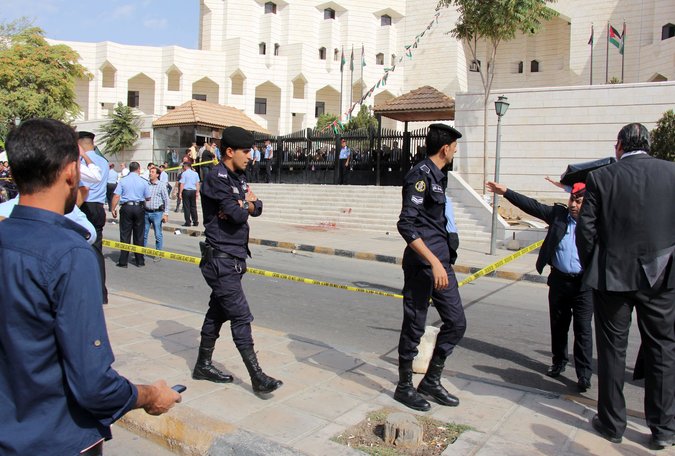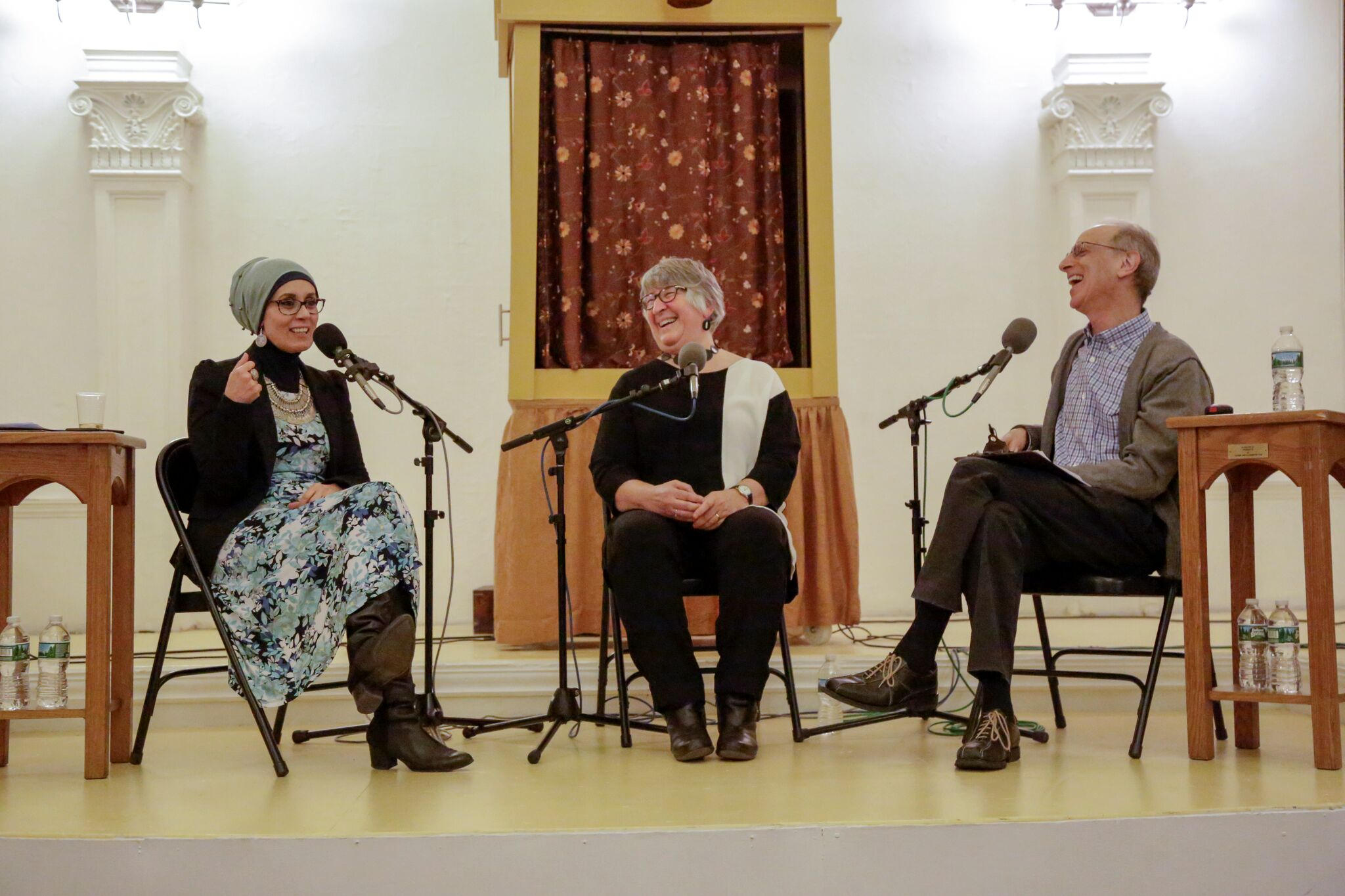The death of the writer Nahed Hattar, who was gunned down on Sunday outside a court where he faced a charge of insulting Islam, “is a huge loss” to Jordan, his cousin says. By THE ASSOCIATED PRESS on September 25, 2016. Photo by Jamal Nasrallah/European Pressphoto Agency.
THE NEW YORK TIMES — Writer, Nahed Hattar, was shot and killed in front of his family Sunday. It happened outside a courthouse where he faced a charge of insulting Islam for a “provocative cartoon” he posted online that depicted a bearded man in bed with two women ordering God to bring him cashews and wine.
The 56-year-old was a prominent writer from a Christian family. His murder in broad daylight in front of his wife and children, unfortunately, is just the latest example of a violent backlash following the sharing of cartoons featuring Muslims. It is another red-flag for the growing tensions Jordan’s government has struggled to control.
According to the Times, as soon as the backlash started, Hattar quickly removed the cartoon, deactivated his social media account and apologized saying, he “did not mean to offend anyone.”
It seems as though the government was using the arrest of Hattar as a public display of the their “maintained control” on its citizens. However, the exact opposite was shown when the arrest did nothing to quell anger amongst the more violence prone factions of the country.
“I saw his lifeless, blood-drained body just now,” his wife, Randa Kakish-Hattar, said in an interview several hours later at her home where she mourned with family and friends. “His two children saw him shot and killed before their eyes. And for what? For sharing a cartoon on Facebook?”
Hattar’s family has accused Jordanian authorities of not doing enough to guard him against threats.
“Nahed apologized about the cartoon,” his cousin Saif Hattar said. “It was misunderstood. We believe the ISIS poisonous mentality was the cause of this but the government failed to protect him.”
During his hearing, Hattar told the court that he shared the cartoon not because he wanted to insult Islam but because of the picture’s ability to point out the hypocrisy of the Islamic State.
According to the Times, in his apology statement, Hattar said the cartoon “mocks ISIS terrorists and their concept of heaven.”





